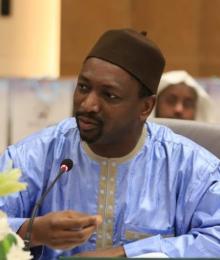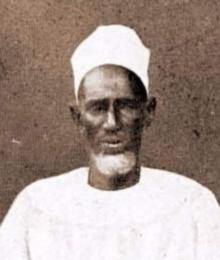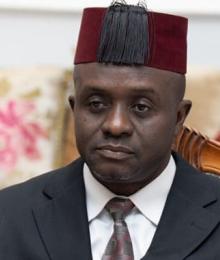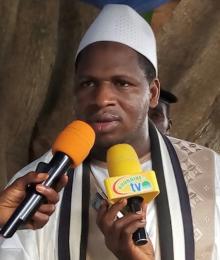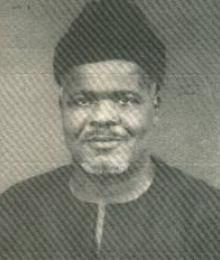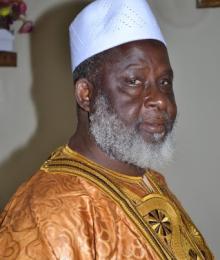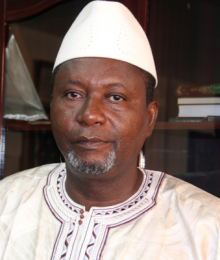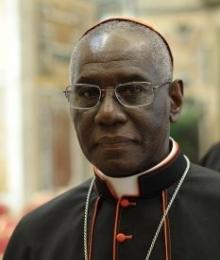
Robert Sarah (born 1945) is a Guinean Catholic prelate who has become one of the most influential and controversial figures in the Vatican. Created cardinal in 2010 by Benedict XVI, this fervent defender of the traditional values of the Church held key positions as prefect of the Congregation for Divine Worship between 2014 and 2021.
Renowned for his ultra-conservative positions against abortion, homosexuality and mass immigration, this former Archbishop of Conakry who fought the Marxist dictatorship in his country has attracted praise from traditional Catholics but also criticism from progressives. Again and again referred to as a potential papabile, this African prelate with an extraordinary course embodies the deep divisions of the Church on social issues.
Introduction
Robert Sarah was born on June 15, 1945 in Ourous, a rural village in former French Guinea. From a family of cultivators converted to Christianity, this member of the Coniaguis ethnicity has become an eminent figure within the Vatican, named cardinal in 2010. A fervent defender of the traditional values of the Church, he illustrated himself by his firm positions on issues such as sexual morality, the right to life and the liturgy. His unusual journey has made him a papabile potential that is regularly mentioned in the media.
Education
Enrolled at the small seminary of St. Augustine in Bingerville in Côte d'Ivoire at the age of 12, Robert Sarah continued his education in Senegal after the expropriation of the Church's property by the Guinea regime in 1961. Forced to interrupt his studies on several occasions due to political tensions, he eventually obtained a degree in theology from the Pontifical Gregorian University in Rome in 1974, after a passage from the Studium Biblicum Franciscanum in Jerusalem. Polyglot, he mastered French, English, Spanish and Italian.
Religious journey
Presbyterate and episcopacy
Ordinated priest in 1969 for the diocese of Conakry, Robert Sarah was appointed Metropolitan Archbishop of the capital of Guinea by John Paul II in 1979. Consecrated bishop the same year, he held this office for more than twenty years, presiding over the national and West African episcopal conferences. His episcopate was marked by his opposition to the repressive Marxist regime of Ahmed Sékou Touré, who inscribed him on a list of sentenced to death.
Cardinalate
Created cardinal-diacru in 2010 by Benedict XVI with the title of San Giovanni Bosco in Via Tuscolana, Robert Sarah has the right to vote at conclaves until he is 80. He is thus one of the voters of the 2013 conclave that saw the election of Pope Francis. His name then circulated among the papabili.
Roman Curia
From 2001 to 2010, he served as secretary of the Congregation for the Evangelization of Peoples under John Paul II. He then chairs the Pontifical Council Cor Unum responsible for charitable works from 2010 to 2014. In November 2014, Pope Francis appointed him prefect of the Congregation for the Divine Worship and the Discipline of the Sacraments, an influential position he held until February 2021.
Other nominations
Thro the years, Robert Sarah served in several Pontifical Congregations and Councils, such as those for the Evangelization of Peoples, for the Laity, and for Justice and Peace. Pope Francis also appointed him a member of the Pontifical Committee for International Eucharistic Conferences in 2015.
Viewpoints
Liturgy
Known for his traditionalist views, Cardinal Sarah advocates a rapprochement between the different forms of Roman liturgy and the return of certain practices abandoned after Vatican II. In 2016, he sparked controversy by calling on priests to celebrate the Mass in the East (ad orientem) rather than to the faithful, before making a reversal on the pope's instruction.
Islam
Despite being impressed by the religious fervor of the Muslims in her home country, Sarah condemns Western military interference in the Middle East that has decimated local Christian communities. He also rejects "pseudo-ideologized Islam" that legitimizes practices such as polygamy or child marriages.
Homosexuality
The prelate strongly opposes any legal recognition of homosexual unions, seeing it as a threat to the traditional family values derived from Catholic doctrine. He thus compares "Western ideologies of homosexuality and abortion" to "two apocalyptic beasts" of "demonic origin", similar to Nazism or Islamic terrorism.
Sexual abuse
Speaking about the crisis of sexual abuse in the Church, Robert Sarah sees "the absence of God" as the main cause, rather than sociological or cultural factors.
Immigration
Fervent critic of mass immigration, the cardinal believes that it is better to help migrants thrive in their culture of origin than to encourage them to join a "Europe in decline".
Resignation
At the age of 75, Robert Sarah resigned from his position as Prefect of the Congregation for Divine Worship in February 2021, upon acceptance of his resignation by Pope Francis. However, this did not put an end to his cardinality.
Honors
During his career, the Guinean prelate has been awarded many honourable distinctions, such as the bailivaté grand-croix d'honneur et de dévotion of the Sovereign Order of Malta (2016), the Grand-Croix de l'Ordre national du Benin (2015) or the insignia de Commandeur de la Légion d'Honneur française. (2012).
Conclusion
Robert Sarah, the highest dignitary of the Catholic Church, has established himself as one of the most conservative voices in the Vatican in recent years. A fervent defender of traditional Catholicism in the face of contemporary social advances, this son of rural Guinea has marked the minds with his breakthrough positions and his growing importance within the Roman Curia. Considered a potential successor to several popes, this black pope who may have created the surprise remains today an influential figure whose future within the Church raises many questions.











